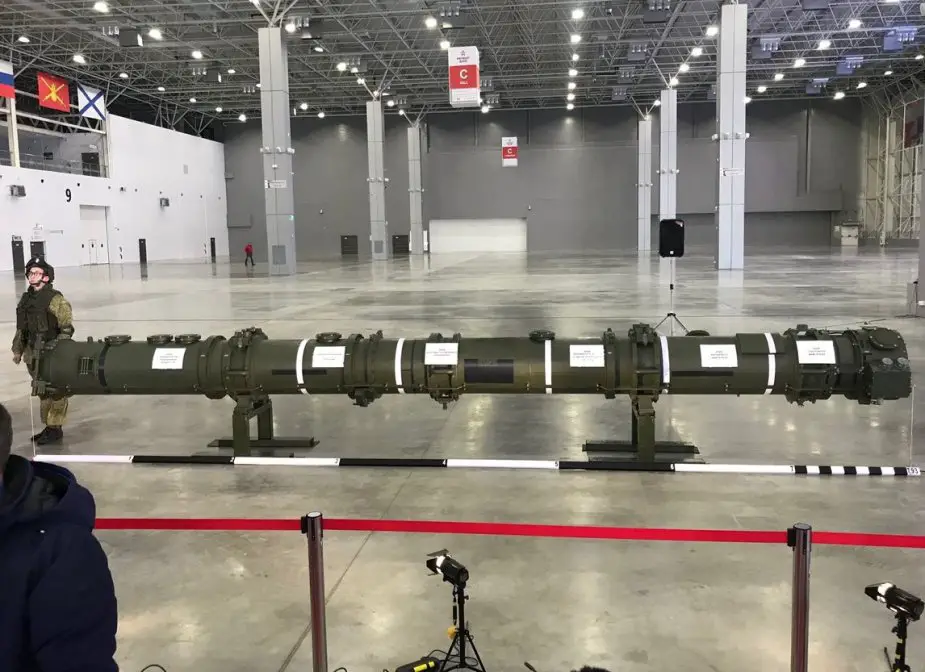Russia will not deploy intermediate missiles in Europe before Americans
Russia is creating intermediate-range missiles, but will not deploy them unless similar US weapons appear in Europe, Russian Deputy Foreign Minister Sergey Ryabkov said. He added Washington is designing both missiles and "various exotic systems" with parameters banned by the Intermediate-range Nuclear Force (INF) Treaty which was terminated in 2019. Experts believe the arms race is inevitable now and will include a bigger number of countries, the Izvestia daily writes, echoed by TASS.

SSC-8 (9M729) ground-launched cruise missile (Picture source: russia.liveuamap.com)
Moscow still hopes the United States will not deploy the missiles close to Russian borders, Ryabkov said. So far, Washington is developing the weapon. "The United States began the design, but no deployment. It develops both missiles and various exotic systems which it says have a range that was banned by the treaty that was in force at the time. We are now engaged in the creation of intermediate missiles, but will not deploy them until (the deployment of US missiles in Europe) happens. We hope it will not happen," he said.
Russian Foreign Minister Sergey Lavrov earlier said Russia may get such missiles, but stressed: "they will not be deployed in any region of the world." The situation may change if the United States deploys the missiles in some parts of the world.
The US Department of State refused to comment on the question of the newspaper whether the USA plans to deliver the missiles to Europe. NATO representatives were also mum.
The INF was finally terminated on August 2, 2019. Russia proposed to NATO countries to introduce a moratorium on the deployment of intermediate and shorter-range missiles. NATO leadership studied the Russian initiative and rejected it 90 days later. NATO Spokesperson Oana Lungescu claimed Russia had already deployed SSC-8 (NATO classification for 9M729 missile which the alliance says is violating the INF). Therefore, the moratorium is senseless until the missile is not destroyed. The Russian Foreign Ministry rejected claims that the range of the missile exceeds 500 km. Lavrov said in early November 2019 the accusations were based on mere allegations without any convincing evidence. "President Putin called on the leaders of NATO countries and Asia and the Pacific Rim to join the moratorium on the deployment of ground intermediate and shorter-range missiles. However, there was no clear response from the North Atlantic alliance. Moreover, they make it clear that NATO would not agree," he told the Moscow Non-Proliferation conference this year.
The long-standing Russian-US INF dispute resulted in a unilateral US withdrawal from the treaty. The USA accused Moscow of violating the INF by trials of 9M729 ground cruise missile at Kapustin Yar range in 2016. Washington claimed its range exceeded the 500-km limit stipulated by the treaty.
In its turn, Russia has been expressing concern for several years that the USA is designing new weapons with parameters outside the INF limits. The claims of Moscow concern three guidelines: missile defense tests against intermediate-range target missiles with characteristics banned by the INF, the use of weapon-carrying drones falling under the treaty provisions, the ground Aegis Ashore missile defense capable of launching banned Tomahawk cruise missiles. "Both Russia and the USA constantly expressed their concern," expert Ivan Timofeyev said. "Moscow has been raising the issue of new weapons for the past 20 years. It insisted that strategic stability can no longer boil down only to nuclear missile arms, as new weapons appear and should be included in the balance," he said.
Russian experts agree it is unreal to conclude new INF agreements at present. When the treaty was yet in force, the United States called on China to join it. Beijing categorically rejected the proposal. At present, there are 32 countries in the world with technical capabilities to design the missiles of the class. The collapse of the bilateral Russian-US agreements provoked a new arms race with a bigger number of participants. It is extremely difficult to stop it in the coming years, the Izvestia said.
© Copyright 2019 TASS / Army Recognition Group SPRL. All rights reserved. This material may not be published, broadcast, rewritten or redistributed.


























